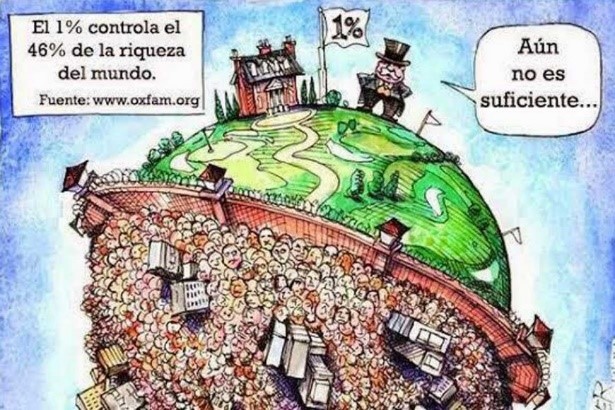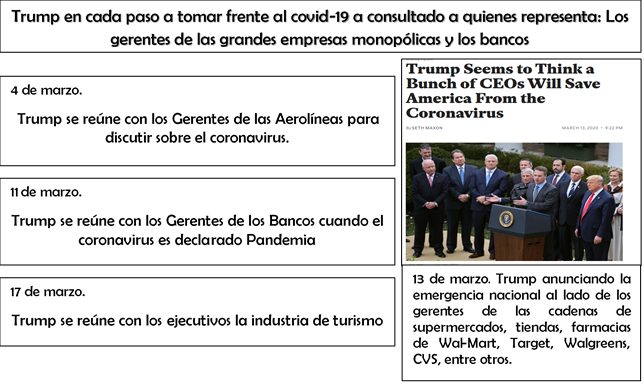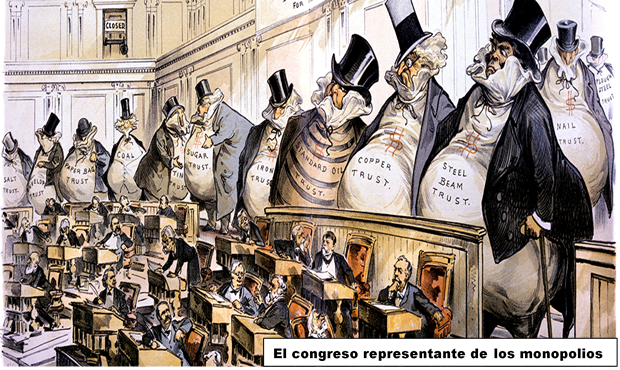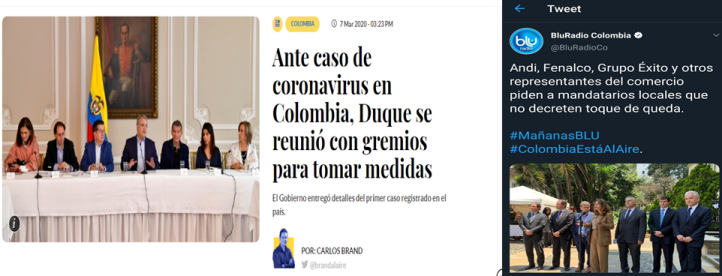Here we publish an inofficial and preliminary translation of the document "Coronavirus-19: El papel de los Estados y el camino del pueblo" by "El Comunero Pensa Popular" from Colombia.
Coronavirus-19: The role of states and the path of the people
"As in a war, we must decide who to save": Italian doctor. We see thousands of grandparents, who are in poor health, dying from a lack of breathing apparatus, not only because of age, but also because of a lifetime of exploitative and excessive work to create a huge wealth appropriated by a handful of capitalists. The number of deaths in the world caused by corona viruses is almost 10,000, and it is wrong that the virus "does not care about the social classes", because this virus has not reached a laboratory where all variables are controlled, but it has reached a society in crisis, with capitalism in decay, with an acute class struggle and with the majority of people exposed to the conditions of misery and exploitation.
The theories about the causes of Coranavirus-19 are many and varied, ranging from the unrest in the wildlife sales centres in China to theories that the United States produced and released the virus for the benefit of the pharmaceutical companies and to alleviate the crisis which was created by the genocide of part of the population. We will not go into these theories in this article, but once the codvid-19 appeared, we will examine how the states reacted and the consequences it had and will have.
What is the reality of Coronavirus-19?
The work of the people and science has brought great progress for mankind. Medicine can perform robotic surgery and imprint organs and tissues for transplantation, but three billion people in the world have no way to wash their hands, and more than 8,000 people in the world die every day from curable diseases. This is because wealth and development are appropriated by a few capitalists.

The health system is a business in all countries and favours the rich classes over the working people. In Colombia, we know as the "death march" the ordeal that hundreds of people go through from hospital to hospital to take guardianship, queue up, make referrals, make phone calls, get paracetamol, wait for months to be examined by a specialist or a doctor's office and then die without any attention. Meanwhile, healthcare companies in Colombia ended 2018 with a profit of 2.3 billion pesos. In the United States, 27 million people are uninsured due to high costs, while the country's 5 largest pharmaceutical companies make $153.4 million in profits per year (figure for 2013) [i]. In Spain (and around the world) several health centres have denounced the lack of beds even before the arrival of Covid-19. It is this health system, which is enriched in a horrible way by the illness and death of the poor, that the coronavirus-19 is penetrating! That is why the coronavirus-19 diagnostic test is not yet free in the United States, but can be performed by anyone who can afford it. That is why Queen Elizabeth II of England is being evacuated from Buckingham Palace and moved to Windsor Castle to bypass Covid-19. Monaco's ruler Albert II, who tested positive for the virus, "is closely monitored by his physician and by specialists at the Princess Grace Hospital Center," while the city's grandparents die worldwide in their homes or in a hospital chair while waiting for an intensive care unit. This is why Trump is seeking US exclusivity for a potential German coronavirus vaccine in order to enrich himself at the expense of people's suffering.
Besides looking at the healthcare system, the current economic and political situation in which coronavirus-19 is present must also be taken into account. Imperialism, the highest phase of capitalism, was on the verge of an economic crisis, a cyclical and deepening crisis caused by the big monopolies and imperialist states with their speculations and uncontrolled production motivated only by their profits and not by the needs of the people. The whole economy slowed down and all signs of a deep crisis appeared. A report by the Swiss investment bank UBS at the end of September 2019 pointed out that 55% of the companies that control the investments of billionaire families worldwide believe that a global economic crisis will occur in 2020 [ii]. In other words, the crisis alarm had already been set in motion before the arrival of Codvid-19. And in the face of this, governments around the world took measures to put pressure on people and make them pay for the crisis: they pushed for cuts around the world, pension reforms, labour reforms, more transport and fuel costs. The governments of many countries took action against people's living conditions, and as a result popular uprisings broke out in many parts of the world in 2019.
This context is important, because when the Covid-19 arrives it will accelerate and worsen this economic crisis, but the states and monopolies are trying to blame the virus for all of the crisis as long as the class struggle and its responsibility in the face of the crisis is unclear. The Coronavirus- 19 is used to hide the disintegration and crisis of the imperialist economy and to try to wipe out the class struggle. This means that we are no longer "at war with a powerful enemy", as Piñera, the President of Chile, said with reference to the popular uprisings in 2019 by openly declaring class struggle. Now "we are at war against an invisible enemy", as Donald Trump said about the Coronavirus-19. Now all of humanity must be united under a single struggle against the virus, which is also the cause of the crisis. Wrong! Last year, the people of France took to the streets against the pension reforms that were harmful to the people, and today President Macron is suddenly concerned about the fate of our elderly people. The crisis is the fault of imperialism, a crisis which, exacerbated by Covid-19, will affect the poorest, who will also be the most affected by the virus.
Why have governments been so slow to respond to coronavirus-19?
So far there is no vaccine available and the only way to reduce the mortality of the virus is to slow its spread by isolating the virus, as this does not require so many intensive care units, while at the same time hospitals would collapse and people would die without being given life-saving oxygen. Therefore, isolation is the current measure that can reduce deaths from Codvid-19. Isolation, however, is against the interests of the large monopolies, because by imposing quarantine it curbs consumption and therefore the economy and profits of the monopolies. That is why the governments are resisting until the very last moment, until dozens of people have died, in order to take measures.
At the end of February, an important congress of telecommunications giants was held in Barcelona and they declared that there was "no health reason to take any action in relation to an event planned in Barcelona, Catalonia or Spain". The vice-president said it was "psychological scare tactics" and just 15 days ago the health department said that "90% of cases in our country are imported" and it does not recommend suspending social events in Spain. The cases were under-registered and that is why the cases suddenly broke out, with 18,000 infected and 3,405 deaths today.
In the United States, Secretary of Commerce Wilbur Ross said on January 31st, when the virus had already killed thousands in China but had not yet reached the United States, that covid-19 "will contribute to job creation in the United States. On 9 March, when the virus was already in the US and deaths had already broken out in Italy, Trump still refused to take measures that would harm the economy. In his Twitter account he published: "Last year 37,000 Americans died from the common flu. The average is 27,000 to 70,000 a year. Nothing closes, life and the economy goes on. There are currently 576 confirmed cases of corona virus with 22 deaths. Think about it. How is it that "the best team in the world", as Trump put it, has not been able to carry out a statistical analysis of the spread of the virus in the United States, having already had the experience of China, Italy and Spain? On March 11, when the virus was declared a pandemic, Trump met with bank managers and discussed their (the banks') state of health and listened to the measures that the CEOs of these banks proposed for the corona virus. Therefore, the measures were not discussed with the scientific team, but with the banks.
Europe and the United States did not "learn" from China, but waited for the spread of the disease and the beginning of deaths before taking measures to isolate them. This is not an easy omission; the States represent the interests of the large monopolies in their countries and therefore do not act for the benefit of the population, but for the health of the monopolies' economies.

Similarly, Latin America has not learned (does not want to learn) from China and Europe. In Colombia, the interior minister said that more drastic measures would have to wait until the fourth week, and the president of Mexico not only does not prescribe any measures, but has decided to travel around the country with a kiss for children, because according to the Secretary of State for Health of this country, "the strength of the president is moral, it is not contagious". In Colombia, three days ago, the head of ANDI (Association of the country's big businessmen) declared: "I call on the local authorities not even to talk about curfews or restrictions on mobility when there is room for such action and we can really get a very good number of people to do the things that society needs. It is important for the economic unions that society does not interfere with their economy and it is these economic unions that the government listens to. The doctors' unions have said, "President Duque, increase the level of restrictions," but just like Trump, the decisions of the Colombian government, before being consulted with medical experts, are consulted and taken in the interests of big business. Hours after the meeting with the big business groups, the Interior Minister declared that "we cannot stop the Colombian economy" and even the government has withdrawn some of the measures taken by the mayors against the virus.
The Colombian government is well aware of the thousands of deaths that the coronavirus will cause in Colombia. It decided not to step up the measures on the same day that there were 475 deaths in Italy in a single day, mainly because they had waited a very long time to take action against the infection. But the government's decisions deliberately put the interests of the large economic groups first. This is genocide!
How does Covid-19 affect the working people in Colombia and what solutions does the government offer them?
Apart from the fact that the poorest receive the worst medical care, they are also the ones most likely to be exposed to the virus because they find it difficult to isolate themselves, not mainly because they are "unconscious" as some say, but because they do not have the economic savings to live without daily work, and they are the ones who have to use public transport the most.
In Colombia, informal employment accounts for 47% of the total. This means that they cannot go home to isolate themselves and wait for a wage, because if they do not work, if they do not "search", they do not eat. 67% of Colombians live on an income of less than 609,400 a month. How could they stop working for a long time under these conditions? 1 in 4 elderly people in the country receive a pension. How could the old people not go to work or beg, as many do?
Und welche Lösungen bietet ihnen die kolumbianische Regierung an? Schauen wir uns einige der ergriffenen Maßnahmen an:
Loans and deferrals! Most of the economic "relief package" proposed by Duque is for people and small businesses that take out loans and defer debts and tax payments. He is offering to take over debts and, if necessary, freeze payments to farmers and small businesses. The Finance Minister said on 18th March that "the public sector must support these decisions of the financial system" which relate to loans and payment deferrals. It remains to be seen how these funds will come out, but one thing is very clear: the banks will not waive the people's debts and grant them interest-free loans from the 19.8 trillion COP (Colombian peso) in profits they made in Colombia last year, and will not even cover the losses from the freezing of payments.
The government also pompously announced that it would place an additional focus on families in action, youth in action, the elderly (government programs of miserable economic aid to the people) and start VAT refunds earlier, a measure that the people won with the popular and fierce struggles of 2019. These measures "cost" the government (which actually comes from the workers' own taxes) 1.37 billion pesos[iii]. This is only half of the annual income of the health sector in Colombia. It also represents less than 10% of the measures taken by the government, which cost 14.8 billion. In other words, only 10% of the cost of the shock measures is invested for the poorest families.
These are some of the measures that the Colombian Government has taken so far, but the questions are many: what will a family with 70,000 pesos for VAT refunds every two months do if the parents are street vendors who depend on daily sales? Will the family live on 1,200 pesos a day? What will a middle class family that has a micro-enterprise and has to close or drastically reduce sales for several months? If you buy a loan now, how will you be able to pay it back later without going bankrupt? Beyond the palaver, the Colombian State is not really interested in the people, it is not taking measures that will really help people not to be exposed to the virus and even less to reduce the cost of its economy, but it is interested in reducing the blows to the economy of the large companies represented by the trade unions.
Only the people can save the people!
"The big media, which insists on spreading fear, hides the immense solidarity between those who are at the bottom. Certainly because they fear them, because there is another world there"[iv]
The solidarity of the people to help each other in difficult times and the struggle of the people to rebel against their executioners are the only salvation the people have.
Everywhere, people have made heroic expressions of solidarity and support to help the elderly and the poorest in difficult times. Groups of young people bring to the elders who are unable to bring food, and initiatives such as the donation of food to the most needy, strikes in the factories that do not carry out health measures, pots and pans from the houses denouncing the precarious situation, medical personnel who have risked their health and even their lives to help the sick, among many other expressions. In difficult times, people unite among themselves to help each other.
In Italy, people in isolation sing bella ciao together.
Peoples of the world: Unite!
It is a time of solidarity, but not among antagonistic classes, but with all the peoples of the world, with all the working people affected by the virus and the crisis. It is not the struggle of all Colombians against the Coronavirus-19, it is not the struggle of all Americans against an "invisible enemy"! The enemy is visible and common to all: the big bourgeoisie and the imperialists and the states, which are only their representatives. They are guilty of the fact that the health system is not able to take care of our elderly people, they are guilty of the fact that no measures are taken to prevent infection in time, they are guilty of the fact that the measures do not relieve the heavy burdens of the working people, who carry their shoulders and with their work receive the fabulous wealth of a few billionaires, who are protected and protected from the virus with the best health care. They are the ones responsible for the current world economic crisis of capitalism; today they wash their hands of it by blaming Covid-19. The peoples united in solidarity and struggle must increasingly direct their efforts in the middle of this new world situation towards the struggle against imperialism and its lackeys in all countries of the world!
[i] Pharmaceutical industry: profits, research and development expenses and merger and takeover bids. https://www.gao.gov/assets/690/688472.pdf
iii] 870 million pesos for bringing forward the VAT reimbursement by 8 months, calculated on the basis of the cost of bringing forward the reimbursement by 8 months, taking into account the government's cost of 1.3 billion pesos per year. Plus P500 billion pesos for the additional payment in families, young people in action and elderly people. According to official estimates by the Minister of Finance.
